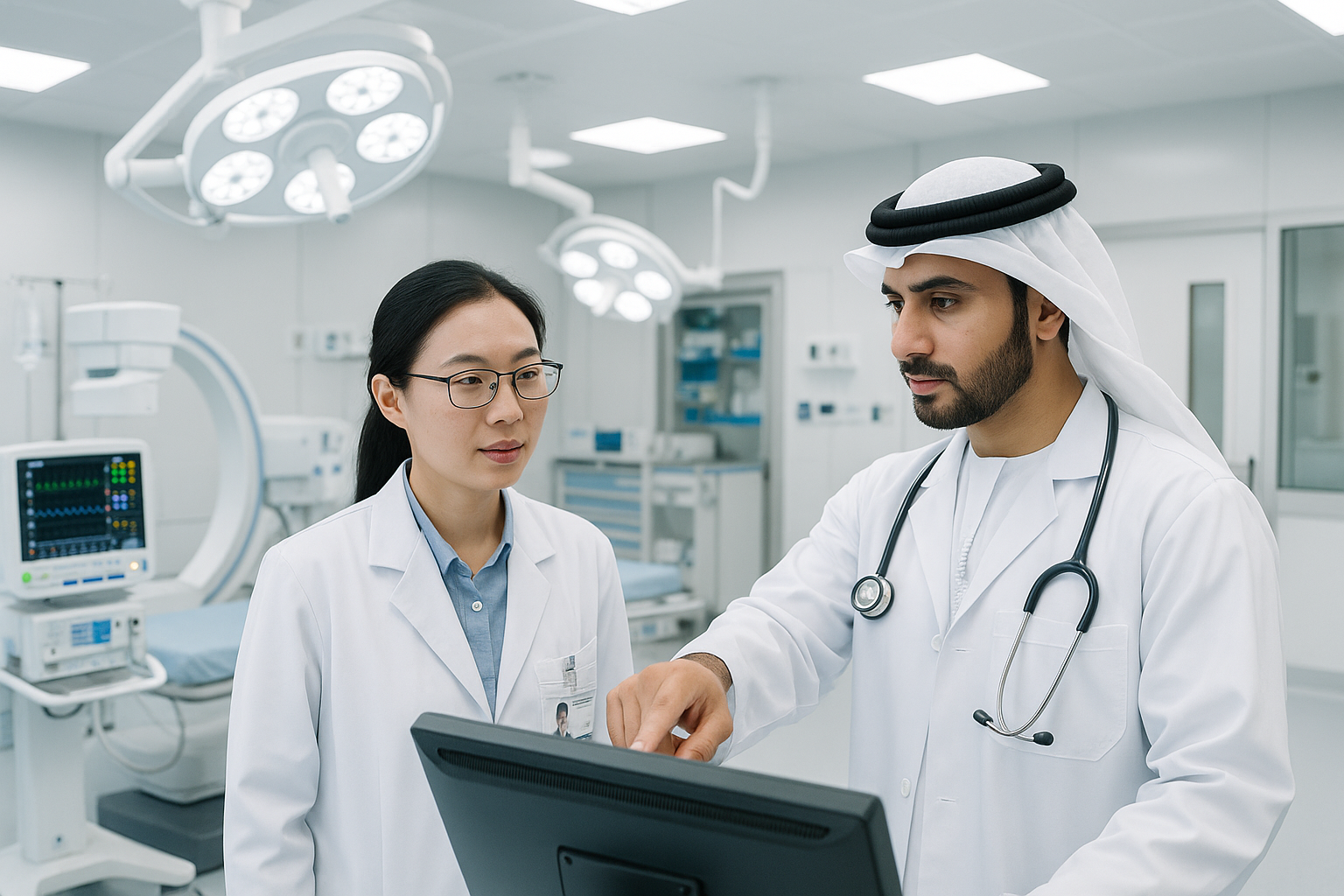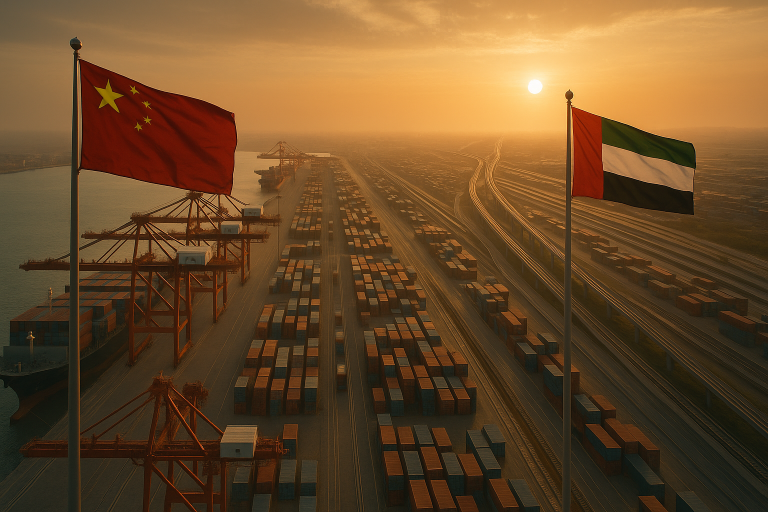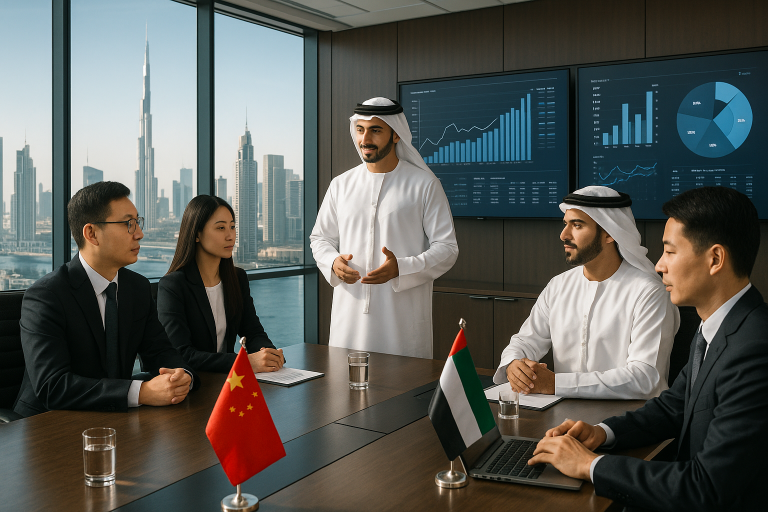Healthcare Cooperation: Advancing Medical Excellence Together
Introduction
In the face of one of the most significant global health crises in a century, the partnership between the People’s Republic of China and the United Arab Emirates was not just tested; it was forged into a powerful alliance for human health. The joint battle against the COVID-19 pandemic, most visibly demonstrated by the historic collaboration on vaccine trials, revealed the profound depth and capability of their cooperation. This partnership has rapidly evolved beyond crisis response into a comprehensive, multi-faceted alliance focused on advancing medical excellence, enhancing public health security, and leveraging cutting-edge technology to build a healthier future. It is a partnership that combines China’s vast experience in public health and its prowess in life sciences with the UAE’s ambition to become a leading global healthcare hub and its world-class clinical infrastructure. This article explores the key dimensions of this vital healthcare cooperation, from the strategic response that provided a global model during the pandemic to the ongoing collaborations in medical technology, pharmaceuticals, and the pioneering future of genomics and life sciences.
A Partnership Forged in Crisis: The COVID-19 Response
The joint response to the COVID-19 pandemic was a defining moment for the China-UAE relationship, transforming it into a partnership of deep strategic trust and demonstrating a remarkable model of international cooperation when it was needed most. While many nations looked inward, China and the UAE looked to each other, combining their strengths in a series of decisive actions that had a global impact.
Case Study: The 4Humanity Vaccine Trials
The most powerful symbol of this collaboration was the 4Humanity campaign, the world’s first Phase III clinical trial of an inactivated COVID-19 vaccine, developed by China’s state-owned pharmaceutical giant, Sinopharm. The UAE, with its diverse, multinational population and advanced healthcare infrastructure, was the ideal location for such a large-scale and complex trial. The campaign was a logistical and scientific triumph, enrolling over 40,000 volunteers from 125 different nationalities in a matter of weeks. This unprecedented effort was made possible by the seamless collaboration between Chinese scientists and the UAE’s health authorities and the G42 healthcare company. The trust demonstrated by the UAE leadership and its people in the Chinese-developed vaccine was a testament to the strength of the bilateral relationship. Following the successful and safe conclusion of the trials, the UAE became the first country in the world to grant full regulatory approval to the Sinopharm vaccine, a decisive move that paved the way for its own successful national vaccination campaign and the vaccine’s subsequent rollout across the globe.
This collaboration, however, went a crucial step further than just trials. In a move of immense strategic foresight, the partnership extended to local manufacturing. A joint venture between Sinopharm and Abu Dhabi-based G42 led to the establishment of a state-of-the-art vaccine production facility in the UAE. This initiative, branded Hayat-Vax, was not just about ensuring the UAE’s own vaccine supply; it was about creating a regional hub for vaccine production and distribution, enhancing public health security and resilience for the entire Middle East, Africa, and beyond. It transformed the UAE from a consumer of vital medical supplies to a producer, a core goal of its long-term economic vision.
Medical Technology and Pharmaceuticals
Beyond the pandemic response, the healthcare partnership is driving the modernization of the UAE’s healthcare sector through the adoption of advanced medical technology and a growing trade in pharmaceuticals. Chinese medical technology companies are an increasingly common sight in the UAE’s world-class hospitals and clinics. They supply a wide range of state-of-the-art equipment, from sophisticated diagnostic imaging machines like MRI and CT scanners to advanced robotic surgical tools and automated laboratory systems, all of which enhance the quality and efficiency of patient care.
The collaboration in digital health is particularly exciting. The two countries are working together to leverage the power of artificial intelligence and big data to revolutionize healthcare delivery. This includes the use of Chinese-developed AI algorithms to assist radiologists in analyzing medical images with greater speed and accuracy, the deployment of telemedicine platforms that allow patients to consult with specialists remotely, and the use of wearable health-tech devices for real-time patient monitoring. This fusion of health and technology is making healthcare more accessible, personalized, and preventative.
In the pharmaceutical sector, China is a key partner for the UAE, serving as a major supplier of active pharmaceutical ingredients (APIs) and finished drug products. Looking to the future, the focus is shifting towards joint ventures in local drug manufacturing, a move that would further enhance the UAE’s pharmaceutical security and create a new pillar for its knowledge-based economy.
Developing World-Class Healthcare Infrastructure
The partnership also extends to the physical development of the UAE’s healthcare landscape. Chinese construction and engineering firms, with their vast experience in large-scale projects, are contributing their expertise to the building of new hospitals and specialized clinics across the country. This contributes to the rapid expansion and upgrading of the nation’s healthcare infrastructure, ensuring that its growing population has access to world-class facilities.
Knowledge exchange and professional development are another vital component of the collaboration. Programs have been established to facilitate the exchange of healthcare professionals, allowing Emirati doctors, nurses, and researchers to receive specialized training in China’s leading hospitals and research institutions. In return, Chinese medical experts frequently visit the UAE to share their expertise in a wide range of fields. A notable area of interest is Traditional Chinese Medicine (TCM). The UAE has officially recognized and integrated TCM into its healthcare system, and a growing number of licensed TCM clinics now offer practices like acupuncture, cupping, and herbal medicine, providing a popular and complementary approach to health and wellness for the UAE’s diverse population.
The Future: Genomics and the Life Sciences
Looking to the horizon, the next frontier of the China-UAE healthcare partnership lies in the revolutionary field of genomics and personalized medicine. This is an area of perfect synergy. The UAE has launched ambitious national genomics programs, such as the Emirati Genome Program, which aims to map the genome of its entire population to better predict, prevent, and treat genetic diseases. This aligns perfectly with China’s own massive genomics research capabilities, spearheaded by world-leading institutions like the BGI Group (formerly Beijing Genomics Institute).
The potential for joint research is immense. By combining their unique genetic datasets and research expertise, the two countries can collaborate on groundbreaking studies into the genetic basis of diseases prevalent in the region, such as diabetes and cardiovascular conditions. This can lead to the development of new diagnostic tools and personalized treatments tailored to the specific genetic makeup of the population. This collaboration in life sciences, from cancer research to longevity, positions the China-UAE partnership at the very cutting edge of medical science.
Conclusion: A Partnership for a Healthier World
The healthcare alliance between China and the UAE is a powerful testament to their shared commitment to human well-being. Forged in the crucible of a global crisis, the partnership has matured into a comprehensive collaboration that is strengthening public health security, accelerating the adoption of medical innovation, and pushing the boundaries of life sciences. It is a partnership driven not just by economic or political interests, but by a shared goal of improving human health and advancing the frontiers of medical science. As they continue to deepen their cooperation, China and the UAE are not only building healthier and more resilient societies at home; they are creating a vital “Health Silk Road” that is making a tangible contribution to a healthier and more secure future for the entire world.







